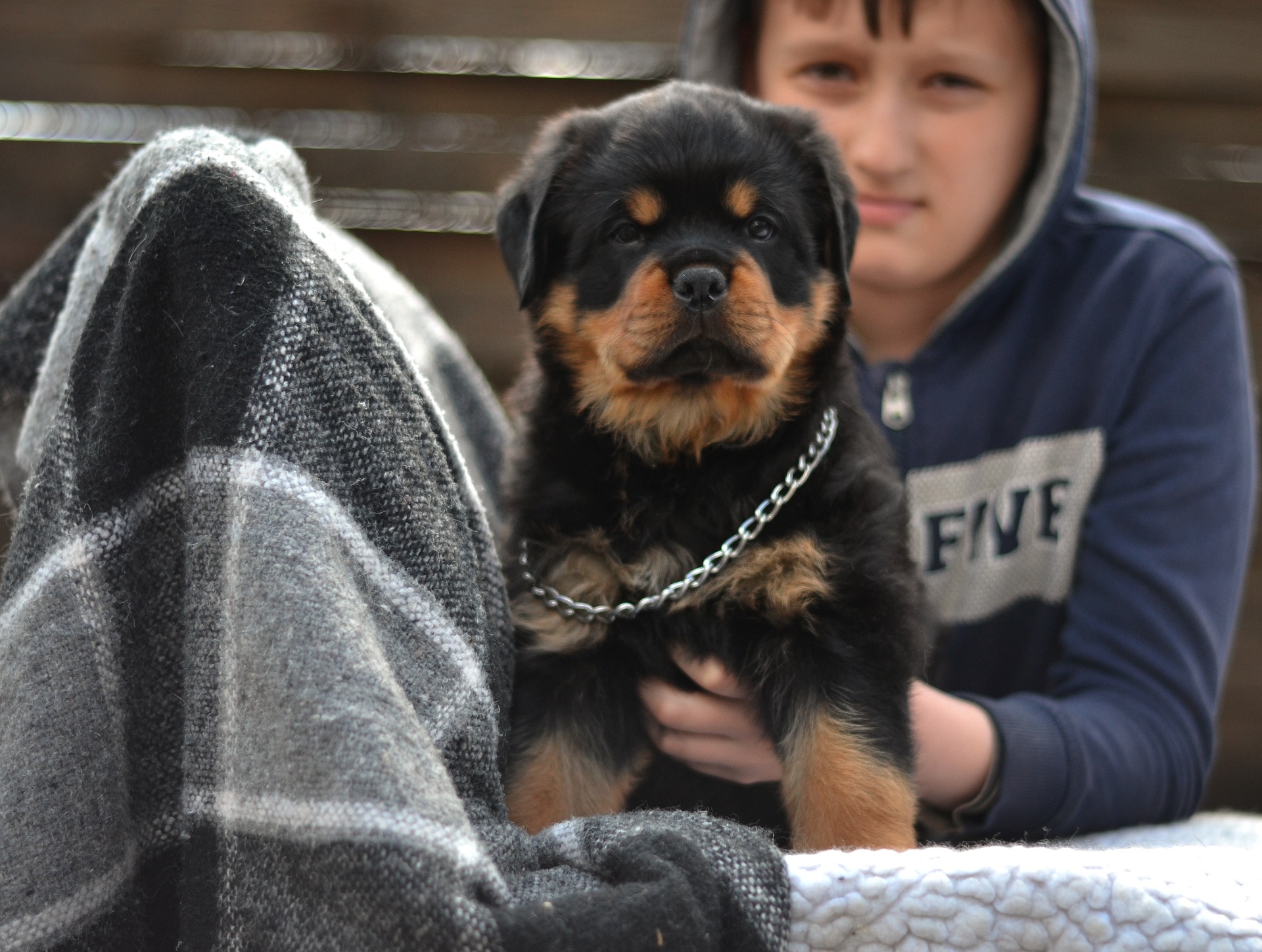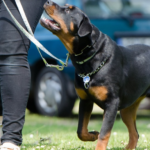Training and socialization are essential for Rottweiler puppies to become well-behaved, well-adjusted adult dogs. The age at which Rottweiler puppies should start training and socialization is an important factor to consider. In this article, we will explore the optimal age for Rottweiler puppy training and the benefits of starting at the right time.
RELATED TOPICS:
- Top 3 best Best Books on Rottweiler Training
- Advanced Training Techniques for Your Rottweiler: A Comprehensive Guide
- Train Your German Shepherd Rottweiler Mix: Tips & Tricks
- Is Training a Rottweiler Difficult? Understanding the Breed
The optimal age for Rottweiler puppy training is during the socialization stage, which begins at around 4 weeks of age and lasts until 12 weeks of age. During this stage, Rottweiler puppies are highly impressionable, and it’s essential to expose them to a variety of people, animals, and environments. This is the best time to start basic training such as housebreaking, obedience training, and socialization.
Starting training and socialization at the right age has several benefits. One of the main benefits is that Rottweiler puppies that are properly trained and socialized are less likely to develop behavioral issues such as aggression, fearfulness, or shyness. Additionally, starting training and socialization at an early age makes it easier to teach your Rottweiler puppy basic commands and good manners, which will make them more enjoyable to live with.
Another benefit of starting training and socialization at the right age is that it makes the training process much more efficient. Rottweiler puppies are more receptive to learning at a young age and are less set in their ways than older dogs. Training and socialization at an early age can also speed up the process of a Rottweiler puppy becoming calm and well-behaved.
How Do You Train A 1-Year-Old Rottweiler?
Training a 1-year-old Rottweiler requires patience, consistency, and positive reinforcement. At this age, your Rottweiler is still a young adult, and it’s important to continue building on the training and socialization that were started during their puppyhood.
- First, it’s important to establish yourself as the pack leader and maintain clear rules and boundaries. This will help your Rottweiler understand what is expected of them and make training more effective.
- Second, continue to provide your Rottweiler with regular exercise and mental stimulation. This includes taking them for regular walks, providing them with interactive toys, and engaging them in training and obedience exercises. This will help to keep them physically and mentally healthy and reduce the likelihood of destructive or disobedient behavior.
- Third, use positive reinforcement techniques when training your Rottweiler. This includes rewarding them with treats, praise, and playtime when they exhibit good behavior. Avoid using physical punishment or negative reinforcement, as this can lead to aggressive or fearful behavior.
- Fourth, enroll your Rottweiler in advanced obedience classes or specialized training. This can include agility training, protection training, and therapy dog training. This will provide them with more advanced training and keep them mentally stimulated and engaged.
- Finally, it’s important to be consistent with your Rottweiler training. Continuity and repetition will help them understand and remember commands. Remember that training and socialization should never stop; they should be ongoing throughout the dog’s life.
Is It Too Late To Train My Rottweiler?
It is never too late to train a Rottweiler, even though the earlier you start, the easier it will be. Rottweilers are highly intelligent and trainable breeds that respond well to consistent, positive reinforcement training. However, older Rottweilers may have already developed certain habits and behaviors that may be more challenging to change.
If you have an older Rottweiler, it’s important to take the time to understand their unique personality and needs before beginning training. An older Rottweiler may require a more gentle and patient approach, but it can still be done. It is also important to consult with a professional trainer or behaviorist to address specific behavioral issues that may have developed over time.
Additionally, it’s essential to provide your Rottweiler with regular exercise, mental stimulation, and a healthy diet to keep them physically and mentally fit. This can improve their ability to learn and retain commands.
At What Age Is A Rottweiler No Longer A Puppy?
A Rottweiler is considered a puppy until they reach physical and mental maturity, which typically occurs between 18 months and 2 years of age. This is the age at which they stop growing and their bones and muscles have fully developed.
During this time, they will also begin to lose some of their puppy-like energy and become calmer and more relaxed. They also start to develop their own personalities and may begin to challenge their owners for dominance. This is why it’s important to continue training and socialization during this stage.
However, it’s important to note that even after Rottweilers have reached maturity, they still require regular exercise and mental stimulation to keep them physically and mentally fit. Additionally, proper training, socialization, and positive reinforcement throughout their lives will help them maintain good behavior.
Final Thoughts About Rottweiler Puppy Training: Age Matters
In conclusion about Rottweiler Puppy Training: Age Matters, the optimal age for Rottweiler puppy training is during the socialization stage, which begins at around 4 weeks of age and lasts until 12 weeks of age. Starting training and socialization at the right age has several benefits, such as reducing behavioral issues, making training more efficient, and helping Rottweiler puppies become calm, well-behaved adults.
It’s important to remember that training and socialization should never stop; they should be ongoing throughout the life of the dog, but starting early will provide a solid foundation for further learning.







